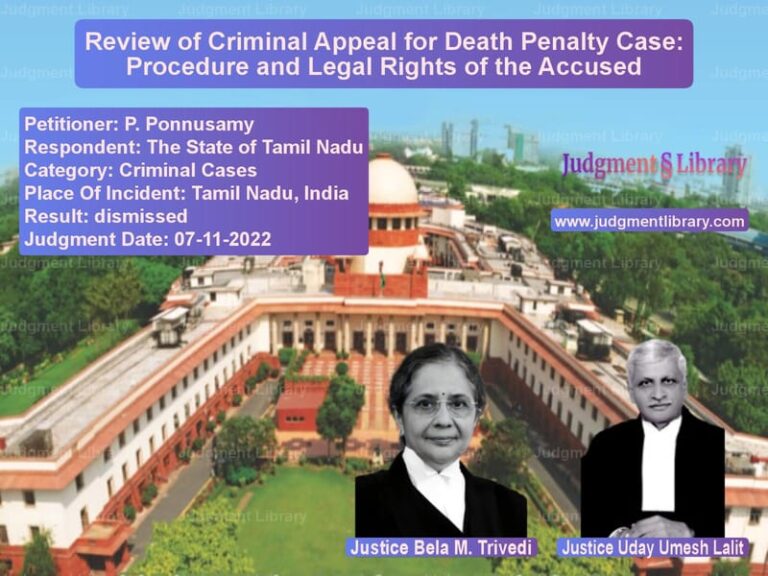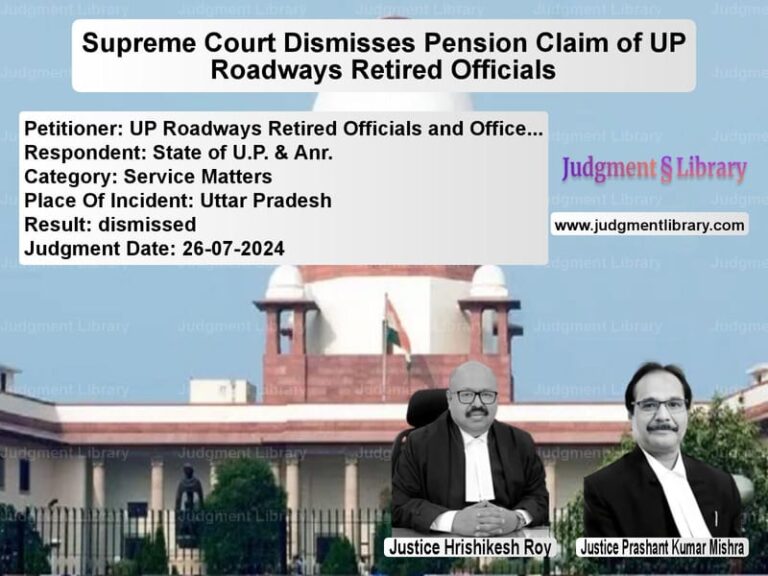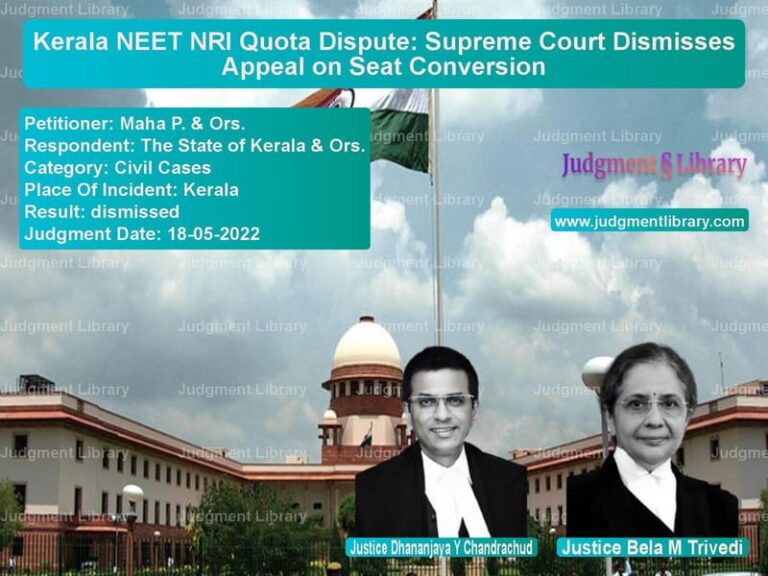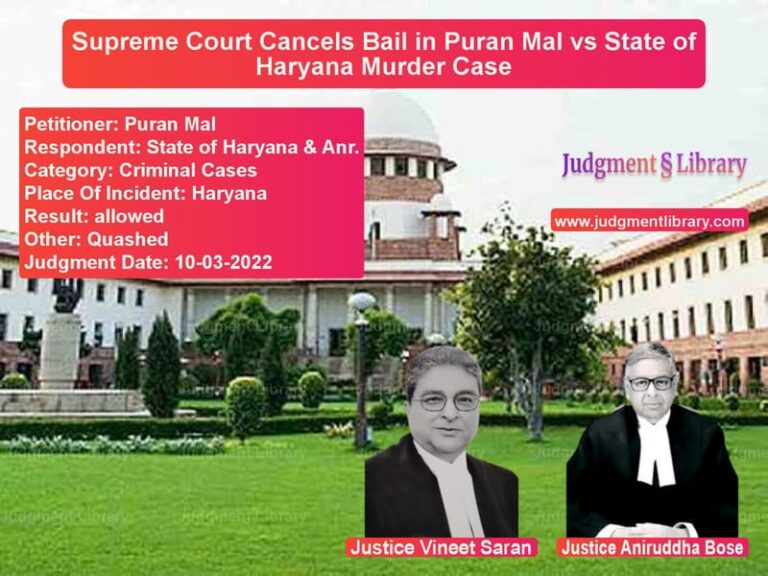Supreme Court Rules on SAIL Quarters: Ex-Employees Denied Long-Term Lease Rights
The legal dispute between the Steel Authority of India Ltd. (SAIL) and its former employees over the right to long-term lease of company quarters has finally been settled by the Supreme Court. The judgment, which was delivered on February 12, 2018, addressed whether ex-employees who opted for the Voluntary Retirement Scheme (VRS) could claim long-term lease rights under SAIL’s 2002 Housing Scheme. The Supreme Court ultimately ruled in favor of SAIL, setting aside the previous High Court order that had directed the company to allot quarters to the former employees.
Background of the Case
The case originates from the Rourkela Steel Plant (RSP), a unit of SAIL, which introduced a Voluntary Retirement Scheme (VRS) in 1999. Under this scheme, employees who had served for a minimum of 15 years or were above the age of 40 could opt for early retirement. Alongside the VRS, a scheme for the ‘Allotment of Quarters to Ex-employees Separating under the SAIL VRS Scheme’ was introduced, allowing retirees to retain their official quarters for 22 months.
In 2002, SAIL introduced the ‘Scheme for Leasing of Houses to Employees,’ which allowed serving employees to obtain a long-term lease of company-owned quarters. However, ex-employees, including those who had retired under VRS, were excluded from the scheme.
Fifty-three ex-employees challenged this exclusion before the Orissa High Court, arguing that they should be given the opportunity to lease the quarters they had been occupying. The High Court ruled in their favor, directing SAIL to consider their cases and allot quarters at the rates applicable when the scheme was introduced.
Arguments Presented Before the Supreme Court
Petitioners’ Arguments
The ex-employees, represented by their legal counsel, argued the following:
- They had been living in the quarters for years and had no alternative housing.
- The exclusion of ex-employees from the 2002 Scheme was arbitrary and violated principles of equality.
- Since they were already residing in the quarters, it would not cause inconvenience to SAIL to extend the scheme’s benefits to them.
- Many of them had spent significant portions of their lives working for SAIL and should be given housing security.
Respondent (SAIL) Arguments
SAIL, in its appeal to the Supreme Court, contended:
- The housing scheme was specifically meant for serving employees to ensure accommodation for those actively working.
- The Rourkela Steel Plant had undergone massive expansion, and available quarters were needed for new employees.
- The State of Odisha had imposed lease conditions restricting land use solely for operational purposes.
- There was a severe shortage of housing at RSP, and providing long-term leases to ex-employees would compromise the availability of accommodation for the growing workforce.
- The High Court’s decision was flawed because it had ignored these constraints.
Supreme Court’s Judgment
The Supreme Court, after hearing both sides, ruled in favor of SAIL and reversed the High Court’s decision. The Court observed:
‘In a situation where no legal right can be understood to have been vested in the respondents under the Scheme of 2002 and operation of the said Scheme today is not considered feasible or necessary by the appellant on account of the reasons stated in the additional affidavit, we do not see how the appellant can be compelled to grant any long-term lease of the official quarters in the RSP to the respondents.’
Furthermore, the Court noted that the lease deed between the State of Odisha and SAIL explicitly restricted land use, preventing SAIL from making alternative arrangements without prior government approval. Given these constraints, the Supreme Court concluded that compelling SAIL to allot quarters to ex-employees would be unjustified.
Key Takeaways from the Judgment
- The Supreme Court reaffirmed that legal benefits under an employment scheme cannot be extended beyond their intended scope.
- It clarified that the State’s restrictions on land use must be adhered to by public sector entities like SAIL.
- The ruling emphasized that companies undergoing expansion must prioritize housing for serving employees over ex-employees.
Final Relief Granted
While denying the ex-employees’ claim for long-term lease rights, the Supreme Court provided a transition period. The Court ruled:
‘The respondents shall be allowed to remain in occupation of the quarters for a period of 33 months with effect from today, on the expiry of which they will hand over vacant and peaceful possession of the said accommodation.’
Conclusion
The judgment in Steel Authority of India Ltd. vs. Choudhary Tilotama Das & Ors. establishes a crucial precedent regarding employment benefits and housing policies in the public sector. The Court’s decision highlights that housing schemes must align with operational requirements and cannot be extended indefinitely to former employees. By granting a limited extension period, the Court sought to balance fairness with legal constraints, ensuring a reasonable transition for the affected ex-employees.
Petitioner Name: Steel Authority of India Ltd.Respondent Name: Choudhary Tilotama Das & Ors.Judgment By: Justice Ranjan Gogoi, Justice R. BanumathiJudgment Date: 12-02-2018
Don’t miss out on the full details! Download the complete judgment in PDF format below and gain valuable insights instantly!
Download Judgment: Steel Authority of I vs Choudhary Tilotama D Supreme Court of India Judgment Dated 12-02-2018.pdf
Direct Downlaod Judgment: Direct downlaod this Judgment
See all petitions in Employment Disputes
See all petitions in Property Disputes
See all petitions in Lease Agreements
See all petitions in Judgment by Ranjan Gogoi
See all petitions in Judgment by R. Banumathi
See all petitions in allowed
See all petitions in Quashed
See all petitions in supreme court of India judgments February 2018
See all petitions in 2018 judgments
See all posts in Civil Cases Category
See all allowed petitions in Civil Cases Category
See all Dismissed petitions in Civil Cases Category
See all partially allowed petitions in Civil Cases Category







